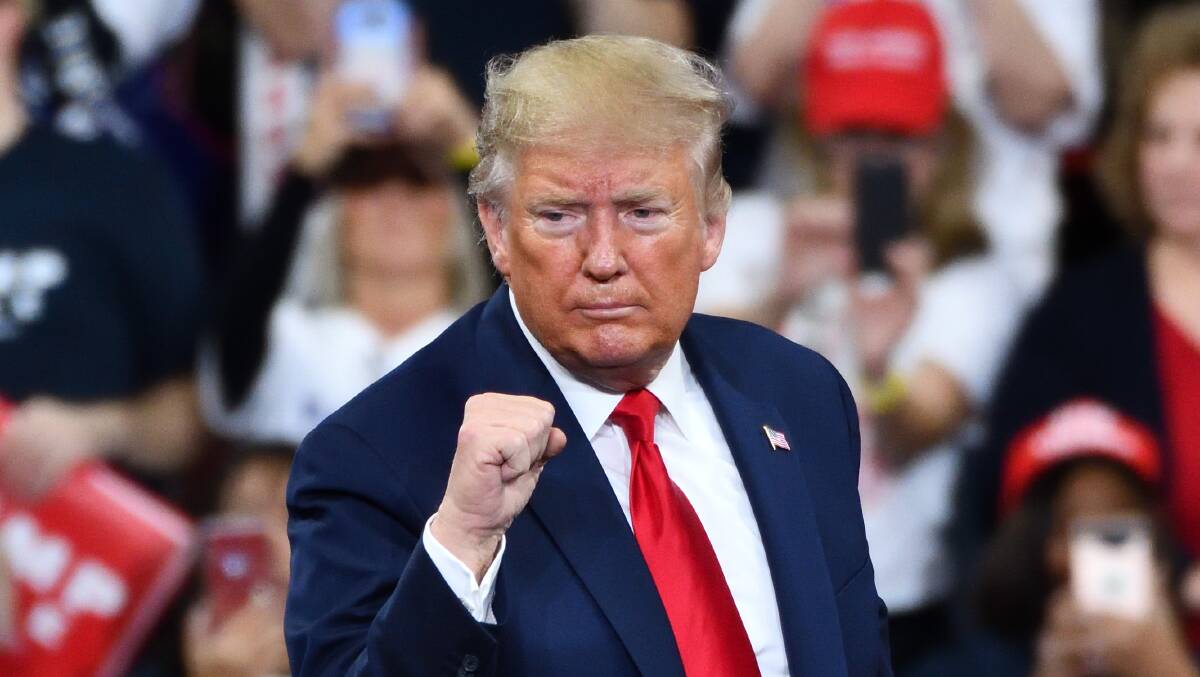
Health authorities are being urged to react far more rapidly to medical misinformation following evidence of a massive spike in internet searches for an unproven COVID-19 treatments.
Subscribe now for unlimited access.
or signup to continue reading
Google searches for the anti-malarial medicines chloroquine and hydroxychloroquine soared after the drugs were endorsed by entrepreneur Elon Musk and United State president Donald Trump last month, United States researchers have found.
The study, published in the journal JAMA Internal Medicine, found that Google inquiries for purchasing chloroquine jumped 442 per cent and for buying hydroxychloroquine soared 1389 per cent after the formulations were controversially touted as potential coronavirus treatments by Mr Musk and Mr Trump.
In all, 216,000 internet searches to purchase the drugs were conducted in just 14 days and demand remained high even after widespread publicity to the death of an Arizona man who ingested an aquarium cleaner containing hydroxychloroquine.
Lead researcher John Ayers of the University of California, San Diego, said the findings showed how influential high-profile endorsements could be, and the "acute risks" involved.
Dr Ayers said medical misinformation typically involved matters such as bogus anti-vaccination claims that may not have an immediate health consequence.
But he said they could have a sudden and tragic effect in the middle of a virus pandemic.
"Any misinformation can carry acute risks," Dr Ayers said. "When you make statements you put people at risk in an acute way."
The effectiveness of chloroquine and hydroxychloroquine in treating COVID-19 is yet to be established.
Australia is one of a number of countries were clinical trials are being undertaken but a US study involving 368 patients found there was no benefit from the drug, either alone or given in combination with an antibiotic, and a higher mortality rate among patients treated with hydroxychloroquine.
Despite the doubts, mining magnate Clive Palmer said he has purchased 32.9 million doses of the drug, through the Palmer Foundation, to be placed on the national medical stockpile.
Mr Palmer declared that hydroxychloroquine was "the best hope" for virus sufferers.
READ MORE:
But Dr Ayers said there insufficient evidence to back the medication's use and urged caution.
"In times of public health crises, therapies should not be touted by public figures," he said. "Endorsements can lead to unsupervised use of products with dangerous consequences.
Dr Ayers said Google and other search providers should install links to evidence-based advice on COVID-19 and urged regulators to respond quickly to false claims and misinformation.
He said that in the US it took the Food and Drug Administration six days after the endorsement by Mr Trump to come out with a statement about the dangers of unsupervised use of the drug and the lack of evidence for its efficacy in treating COVID-19.
"The regulatory infrastructure and the NGOs [non- government organisations] are slow moving," Dr Ayers said. "COVID-19 has revealed that."
He said regulators had to be far better at monitoring and responding to messages that are reaching the public.
In a sign that Australian health authorities are prepared to crack down hard on misinformation, celebrity chef Pete Evans has been fined $25,000 after claiming that a light machine could help with the "Wuhan virus".
In a statement, the Therapeutic Goods Administration said the claim had "no apparent foundation" and had been the subject of a number of complaints.
"Any claim that references COVID-19..is of significant concern to the TGA given the heightened public concern about the pandemic," the TGA said.
The paper, 'Internet searches for unproven COVID-19 therapies in the United States' can be viewed here.
- For information on COVID-19, please go to the federal Health Department's website.
- You can also call the Coronavirus Health Information Line on 1800 020 080
- If you have serious symptoms, such as difficulty breathing, call Triple Zero (000)
Our COVID-19 news articles relating to public health and safety are free for anyone to access. However, we depend on subscription revenue to support our journalism. If you are able, please subscribe here. If you are already a subscriber, thank you for your support. If you're looking to stay up to date on COVID-19, you can also sign up for our twice-daily digest here.


